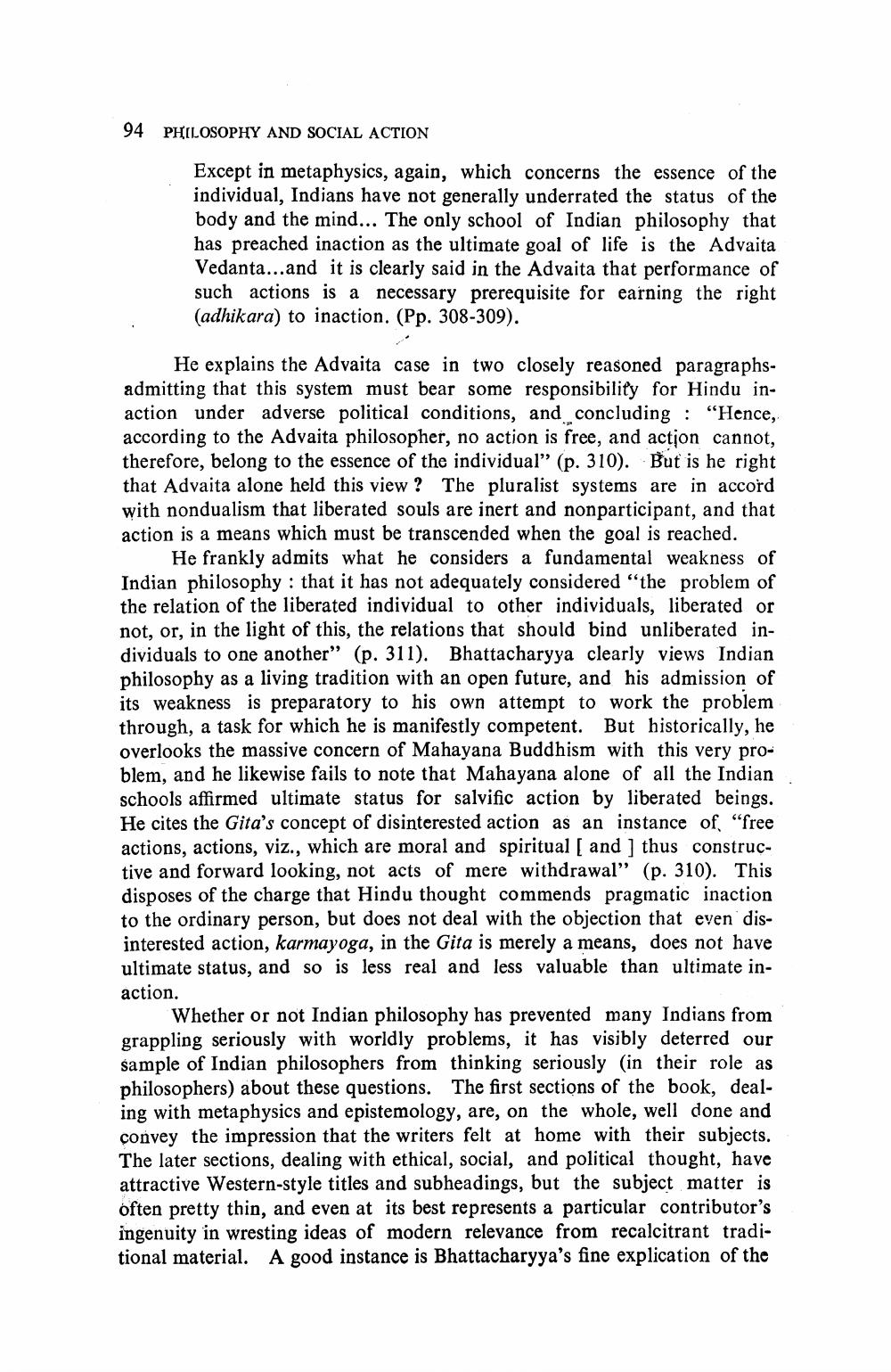Book Title: Indian Mind Essentials Of Indian Philosophy And Culture Author(s): Richard H Robinson Publisher: Richard H Robinson View full book textPage 7
________________ 94 PHILOSOPHY AND SOCIAL ACTION Except in metaphysics, again, which concerns the essence of the individual, Indians have not generally underrated the status of the body and the mind... The only school of Indian philosophy that has preached inaction as the ultimate goal of life is the Advaita Vedanta...and it is clearly said in the Advaita that performance of such actions is a necessary prerequisite for earning the right (adhikara) to inaction. (Pp. 308-309). He explains the Advaita case in two closely reasoned paragraphsadmitting that this system must bear some responsibility for Hindu inaction under adverse political conditions, and concluding : "Hence, according to the Advaita philosopher, no action is free, and action cannot, therefore, belong to the essence of the individual" (p. 310). But is he right that Advaita alone held this view? The pluralist systems are in accord with nondualism that liberated souls are inert and nonparticipant, and that action is a means which must be transcended when the goal is reached. He frankly admits what he considers a fundamental weakness of Indian philosophy : that it has not adequately considered "the problem of the relation of the liberated individual to other individuals, liberated or not, or, in the light of this, the relations that should bind unliberated individuals to one another" (p. 311). Bhattacharyya clearly views Indian philosophy as a living tradition with an open future, and his admission of its weakness is preparatory to his own attempt to work the problem through, a task for which he is manifestly competent. But historically, he overlooks the massive concern of Mahayana Buddhism with this very problem, and he likewise fails to note that Mahayana alone of all the Indian schools affirmed ultimate status for salvific action by liberated beings. He cites the Gita's concept of disinterested action as an instance of "free actions, actions, viz., which are moral and spiritual [ and ] thus constructive and forward looking, not acts of mere withdrawal” (p. 310). This disposes of the charge that Hindu thought commends pragmatic inaction to the ordinary person, but does not deal with the objection that even disinterested action, karmayoga, in the Gita is merely a means, does not have ultimate status, and so is less real and less valuable than ultimate inaction. Whether or not Indian philosophy has prevented many Indians from grappling seriously with worldly problems, it has visibly deterred our sample of Indian philosophers from thinking seriously in their role as philosophers) about these questions. The first sections of the book, dealing with metaphysics and epistemology, are, on the whole, well done and convey the impression that the writers felt at home with their subjects. The later sections, dealing with ethical, social, and political thought, have attractive Western-style titles and subheadings, but the subject matter is often pretty thin, and even at its best represents a particular contributor's ingenuity in wresting ideas of modern relevance from recalcitrant traditional material. A good instance is Bhattacharyya's fine explication of thePage Navigation
1 ... 5 6 7 8 9 10 11
